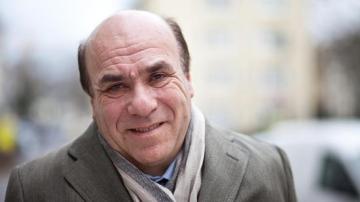In Michel De Vroey’s version of the history of macroeconomics, Robert Lucas’ declaration of the need for macroeconomics to be pursued only within ‘equilibrium discipline’ and declaring equilibrium to exist as a postulate, is hailed as a ‘Copernican revolution.’ Equilibrium is not to be considered something that characterises real economies, but rather “a property of the way we look at things.” De Vroey, approvingly, notices that this — as well as Lucas’ banning of disequilibrium as referring to ‘unintelligible behaviour’ — “amounts to shrinking the pretence of equilibrium theory.” Mirabile dictu! Is it really a feasible methodology for economists to make a sharp divide between theory and reality, and then — like De Vroey and Lucas — treat the divide as something
Topics:
Lars Pålsson Syll considers the following as important: Economics
This could be interesting, too:
Lars Pålsson Syll writes Schuldenbremse bye bye
Lars Pålsson Syll writes What’s wrong with economics — a primer
Lars Pålsson Syll writes Krigskeynesianismens återkomst
Lars Pålsson Syll writes Finding Eigenvalues and Eigenvectors (student stuff)
In Michel De Vroey’s version of the history of macroeconomics, Robert Lucas’ declaration of the need for macroeconomics to be pursued only within ‘equilibrium discipline’ and declaring equilibrium to exist as a postulate, is hailed as a ‘Copernican revolution.’ Equilibrium is not to be considered something that characterises real economies, but rather “a property of the way we look at things.” De Vroey, approvingly, notices that this — as well as Lucas’ banning of disequilibrium as referring to ‘unintelligible behaviour’ — “amounts to shrinking the pretence of equilibrium theory.”
Mirabile dictu!
Is it really a feasible methodology for economists to make a sharp divide between theory and reality, and then — like De Vroey and Lucas — treat the divide as something recommendable and good? I think not.
Fortunately, there are other economists with a less devoted hagiographic attitude towards Lucas and his nonsense on stilts.
Alessandro Vercelli is one:
The equilibria analysed by Lucas are conceived as stationary stochastic processes. The fact that they are stationary imposes a long series of restrictive hypotheses on the range of applicability of the heuristic model, and these considerably reduce the empirical usefulness of Lucas’s equlibrium method …
For such a method to make sense … the stationary ‘equilibrium’ stochastic process must also be ‘dynamically stable,’ or ‘ergodic,’ in the terminology of stochastic processes …
What is worse, if one adopts Lucas’s method of pure equilibrium implying the non-intelligibility of disequilibrium positions, there is no way to argue about the robustness of the alternative equilibria under consideration. In other words, Lucas’s heuristic model, not to mention the analytical models built according to his instructions, prove to be useless for the very purpose for which they were primarily constructed — the evaluation of alternative economic policies.
 Another one is Roman Frydman, Professor of Economics at New York University and a long time critic of the rational expectations hypothesis. In his seminal 1982 American Economic Review article Towards an Understanding of Market Processes — an absolute must-read for anyone with a serious interest in understanding what are the issues in the present discussion on rational expectations as a modelling assumption — he showed that the kind of models that Lucas recommends — models founded on ‘equilibrium discipline’ and the rational expectations hypothesis — is inadequate as a representation of economic agents’ decision making.
Another one is Roman Frydman, Professor of Economics at New York University and a long time critic of the rational expectations hypothesis. In his seminal 1982 American Economic Review article Towards an Understanding of Market Processes — an absolute must-read for anyone with a serious interest in understanding what are the issues in the present discussion on rational expectations as a modelling assumption — he showed that the kind of models that Lucas recommends — models founded on ‘equilibrium discipline’ and the rational expectations hypothesis — is inadequate as a representation of economic agents’ decision making.
Those who want to build macroeconomics on microfoundations usually maintain that the only robust policies and institutions are those based on rational expectations and representative actors. As yours truly has tried to show in On the use and misuse of theories and models in economics there is really no support for this conviction at all. For if this microfounded macroeconomics has nothing to say about the real world and the economic problems out there, why should we care about it? The final court of appeal for macroeconomic models is the real world, and as long as no convincing justification is put forward for how the inferential bridging de facto is made, macroeconomic modelbuilding is little more than hand waving that give us rather a little warrant for making inductive inferences from models to real-world target systems. If substantive questions about the real world are being posed, it is the formalistic-mathematical representations utilized to analyze them that have to match reality, not the other way around.
The real macroeconomic challenge is to accept uncertainty and still try to explain why economic transactions take place – instead of simply conjuring the problem away à la Lucas by assuming equilibrium and rational expectations, and treating uncertainty as if it was possible to reduce to stochastic risk. That is scientific cheating. And it has been going on for too long now.
